The Italian real‑estate securitisation market continues its swift expansion. In just twelve months, the number of special‑purpose vehicles (SPVs) created for real‑estate securitisations rose by 40%, from 47 to 66, while the total volume of the segment has now surpassed €3.5 billion (up from €2.5 billion in 2024, a 40% increase). These figures were unveiled at the conference Real Estate Securitisation for Real Estate Evolution in Banking, now in its second edition, organized by Zenith Global—Italy’s leader in structured‑finance transactions—with scientific backing from SDA Bocconi and in partnership with Deloitte.
“Real‑estate securitizations are a high‑impact tool for the financial system. The case study we examined—securitizing non‑core assets of one of Italy’s major banking groups—demonstrates that, in a European context marked by mounting capital pressures and structural shifts in banking, it is possible to generate value for all stakeholders—from banks and institutional investors to corporates and financial institutions—through transactions that blend efficiency, flexibility, and capital enhancement. Active management of property-backed assets, enabled by sophisticated de‑consolidation structures, optimizes performance while freeing up vital resources for growth. We thank Zenith Global for its pivotal role in spreading knowledge through RES 4 – Revolution in Banking, and for setting best‑practice standards in real‑estate securitisation to support a more robust, transparent, and sustainable finance,” commented Andrea Beltratti and Alessia Bezzecchi of SDA Bocconi School of Management, Scientific Directors of the Real Estate Securitisation research project for Zenith Global.
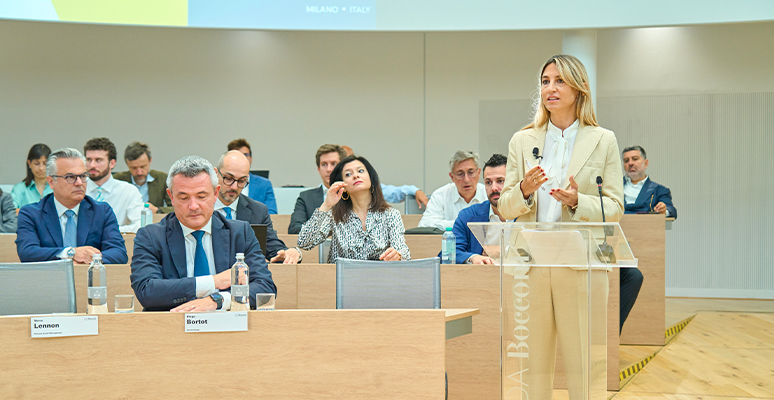
Alessia Bezzecchi
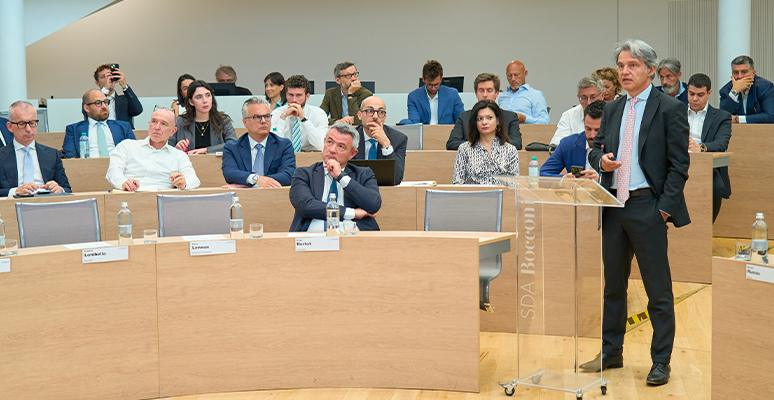
Andrea Beltratti
The second edition of the event focused on banking, its interplay with real estate, and how securitizations can serve as an effective tool for active balance-sheet management, capital optimization, and risk containment. Through securitization, banks can transfer property-backed assets—whether foreclosed properties, repossessed assets, etc.—to an SPV. This process allows the bank to deconsolidate these real‑estate assets from its balance sheet, thereby releasing capital and improving regulatory ratios.
Real‑estate securitization involves transferring ownership of any type of property to an SPV, which then issues bonds backed by the cash flows generated from those assets, available for purchase by investors.
The benefits are manifold: streamlined governance with direct investor oversight, faster deal execution, and the segregation of assets and liabilities into a separate legal entity. All proceeds from asset value appreciation go directly to bondholders.
“The real‑estate securitization market is entering a new maturity phase,” said Umberto Rasori, CEO of Zenith Global. “We were the first to recognize this instrument’s vast potential, guiding the market’s growth. Soon, we expect pivotal developments such as the dematerialization of ABS through tokenization. Today, we manage around 40 active transactions with investor commitments of approximately €2.3 billion, solidifying our leadership with over 60% market share.”
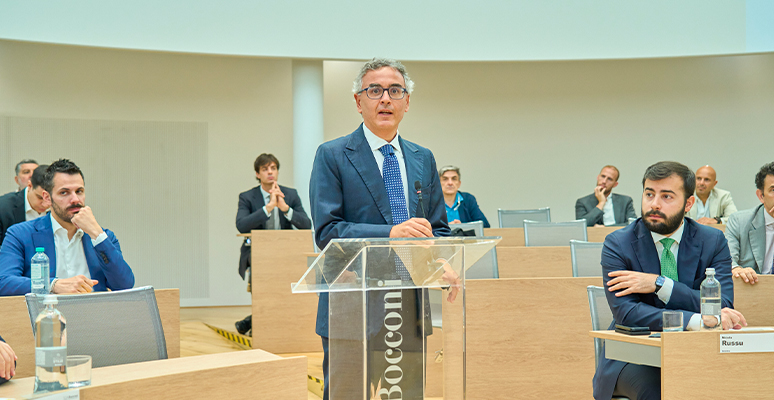
Umberto Rasori
“Our survey of major Italian real‑estate lenders showed that banks have begun taking their first steps into securitization,” added Angela D’Amico, Partner and Real Estate Sector Leader at Deloitte. “Familiarity with the instrument is steadily increasing: about 40% of surveyed banks have engaged in real‑estate securitizations, primarily via traditional mortgage financing. Despite regulatory and risk‑management uncertainties, banks remain central to the credit market’s evolution, and further development of securitizations will benefit greatly from deeper bank involvement. Overall, industry expectations for the future are very positive.”
The conference
Held at SDA Bocconi’s Ferrero Auditorium, the event opened with Paola Cillo, Associate Dean of Research at SDA Bocconi, who highlighted how technological innovation and digitalization are indispensable levers for value creation in real estate and finance.
Umberto Rasori then explored new financial frontiers and tokenization—key themes for the market’s future growth.
Andrea Beltratti, Academic Director of the Executive Master in Finance and Full Professor of Finance at Bocconi University, examined the implications for banks, outlining challenges and opportunities in integrating real‑estate securitizations into their business models.
Angela D’Amico presented the latest market data, confirming strong growth and positive operator sentiment.
Diego Bortot, Chief Asset Management Officer at Zenith Global, explained the structure and mechanics of real‑estate securitizations, setting the stage for the final roundtable.

Angela D’Amico
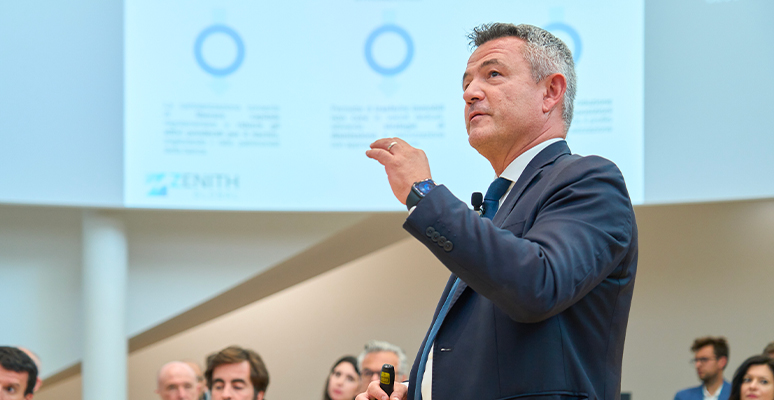
Diego Bortot
Case study: Italy’s largest ever real‑estate securitization
Moderated by Alessia Bezzecchi, Program Director of the Executive Master in Finance and Associate Professor at SDA Bocconi, the roundtable featured key players in the biggest securitization to date: the December 2024 transaction that packaged over 300 non‑core properties held by Banco BPM, worth approximately €300 million.

Steve Lennon
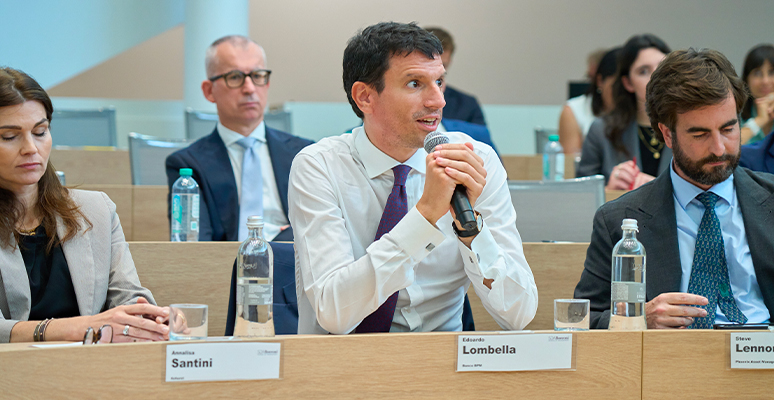
Edoardo Lombella

Annalisa Santini
Panelists Steve Lennon (Phoenix Asset Management), Edoardo Lombella (Banco BPM), Annalisa Santini (Ashurst), and Diego Bortot (Zenith Global) shared insights on this landmark deal—an emblematic example of how securitizations are cementing their role as a cornerstone of Italy’s real‑estate finance market.
SDA Bocconi School of Management














